|
The USCCB designates each October as Respect Life Month: “a time to focus on God’s precious gift of human life and our responsibility to care for, protect, and defend the lives of our brothers and sisters.” The duty to bear Christian witness to the dignity of every human life extends, of course, throughout the year. The annual March for Life in DC and similar marches in other cities highlight the efforts of advocates for the unborn, but being pro-life includes many activities that receive less fanfare but that are no less important. By appreciating the inherent dignity and worth of each life as created by God, we recognize the sanctity of creation and our need to defend it.
The existence of an abortion clinic near my home exemplifies disregard for the dignity of human life, as well as the reality that many clients feel as if there is no better option for themselves or the nascent life inside the womb. To attempt to provide clients with an alternative to abortion and offer support, a number of advocates on the sidewalk offer counseling while others protest the clinic’s operation, pray for the souls affected, and pray in reparation for the sins committed there. Drivers and pedestrians passing by often passionately criticize our presence; many others choose ignorance or don’t want to become involved in such a contentious issue. It’s not a comfortable situation to be in, but we know we have a chance to intervene on behalf of the unborn and the parent(s) who don’t know where else to turn for assistance. Our position is not one of judgment but of love; we cannot turn a blind eye to this silent suffering. Being a father, I vividly recall the excitement and joy of seeing my child develop in the womb of my spouse and then be delivered into this world as an infant. These life events made my pro-life convictions more tangible for me. Even under less-than-ideal circumstances of conception, the personhood of the unborn is not diminished and therefore merits protection. Fatherhood continues to teach me about myself and my role leading a family towards holiness. I have learned I must recognize the graces God bestows on us to build our domestic church and be witnesses to the sanctity of life: the person, the family, and our Faith. I am encouraged by the many who engage with the culture and lawmakers to challenge preconceptions or misconceptions about the value of human life. The immigrant, refugee, criminal, and marginalized are endowed with the same worth as each of us! Threats to the sanctity of life endure in our society and also include sterilizations, physician-assisted suicides, human trafficking, mistreatment and neglect of seniors and the disabled, and other forms of abuse. While others may ignore these sad realities, the pro-life movement knows we have our work cut out for us. In every way in which we engage, educate, and work to convert hearts and minds to be more aware of the value of the life which we have been gifted, we must always act with love, compassion, and hope for the protection and celebration of all forms of human life, from conception through natural death. Life is precious, life is sacred, and life is worth protecting. If we do not take a stand to defend the most vulnerable, who will?
0 Comments
From the evening Mass of the Lord’s Supper until Evening Prayer on Easter Sunday, the Church celebrates a very special period called the Paschal Triduum. As the USCCB explains, the Easter Triduum is the summit of the Liturgical Year which “marks the end of the Lenten season.” Because of this important spiritual shift, there are some symbols used during this liturgical season that are unique to the Paschal Triduum, and I hope that you might find and reflect on these symbols this year as we commemorate the life, death, and Resurrection of Christ.
Holy Thursday Holy Oils The Holy Oils that are used by the Church throughout the year (Oil of the Sick, Oil of the Catechumens, and Holy chrism) may be presented during the entrance procession of the Mass of the Lord’s Supper on Holy Thursday. These oils are blessed by the Bishop during the Chrism Mass—which can happen on Holy Thursday or another time during Holy Week—with the priests of the diocese gathered at the local cathedral. During this celebration, all of the priests present renew their priestly vows. Ringing of the Bells During the “Gloria” which is sung on Holy Thursday, we hear the altar bells ringing! We are celebrating the Mass for the last time until the Easter Vigil, and the Church is in mourning so the bells will remain silent until we sing the “Gloria” again. Washing of the Feet As Jesus did at the Last Supper (John 14:1-17), the Church is called to wash the feet of the members of the Body of Christ during the celebration of the Institution of the Eucharist. This symbol of humility is a wonderful connection with the service of Christ. Ubi Caritas It is rare that the Church prescribes a specific hymn to be sung other than those prescribed for the Proper of the Mass, yet on Holy Thursday the Roman Missal says that we should sing the ancient song “Ubi Caritas” during the Offertory. A very simple song, the lyrics are very meaningful, especially for the Mass of the Lord’s Supper. Translated, they mean "Where charity is, God is there." Eucharistic Procession and Reposition The Church’s tabernacle, while normally filled with the Blessed Sacrament and reserved hosts, is emptied and brought to the Altar of Repose where the faithful are invited to join in Adoration. This procession is meant to be of great importance for the community and reminds us of the walk that Christ is about to take the following day on the Via Dolorosa, but instead of being nailed to a cross, we place our King in a place of honor. Good Friday Fonts After the Mass of the Lord’s Supper on Holy Thursday, churches are supposed to empty their Holy Water fonts “in preparation of the blessing of the water at the Easter Vigil, and it corresponds to those days on which the Eucharist is not celebrated (i.e., Good Friday and Holy Saturday).” (EWTN) Prostration On Good Friday, the Church is mourning the death of Christ and is full of sorrow. In response to this sorrow, the priest (and deacon, if present) prostates himself in front of a stark, barren altar. There is no music and none of the regular pomp and circumstance that comes with the beginning of a liturgical celebration. No sacraments are to be celebrated but that of penance and the anointing of the sick. The earth has gone quiet. No Invitation Normally, when a priest begins Mass, he invites us all to pray along with him, saying, “Let us pray.” During the Celebration of the Lord’s Passion (Good Friday), no such invitation is made. The priest just begins his invocation. Solemn Intercessions You may find that the prayers of the faithful may take longer than normal. Your church may sing them or have them chanted, with some kneeling and standing interspersed. Adoration of the Holy Cross There are many ways in which the Celebration of the Lord’s Passion is different from other liturgical celebrations, and the adoration of the Cross is certainly one of them. We are invited to come forward and spend time in veneration and adoration of the Cross on this most solemn of days – the day on which Christ perished while hanging from the very cross which we venerate. You may notice people genuflecting to the cross – this is something reserved specifically for Good Friday, out of veneration and sorrow for the blood which was shed and soaked up by the wood of the cross. Communion The Celebration of the Lord’s Supper is not a Mass. It is the one day out of the year in which no Mass is celebrated anywhere on Earth. Therefore, when we come to the celebration, there is no Eucharistic Prayer or any prayer related until, after the Adoration of the Holy Cross, the priest or deacon brings out the Blessed Sacrament and begins praying the Agnus Dei as it is normally done at Mass, which follows with himself and others receiving the Blessed Sacrament. Holy Saturday and the Easter Vigil Decoration When one walks into the church for the Easter Vigil, they will notice a big change from the celebrations of Lent and Holy Week – the church should be decorated with lilies, white and gold, and a joyful décor! While the lights should be turned down as well, we are anticipating the Resurrection and the excitement is palpable! The Light of Christ From the fire used to light the Easter Candle, the inscriptions on the Easter Candle, and the procession into the Church, light is integral to the Easter Vigil due to its representation of the "light of Christ, rising in glory," scattering the "darkness of our hearts and minds." We process into the Church with the Easter Candle, “just as the children of Israel were guided at night by the pillar of fire, so Christians follow the risen Christ” as we proclaim The Light of Christ while singing praises of thanksgiving! (USCCB) Readings Instead of the standard 3 readings at a Sunday Mass, at the Easter Vigil we generally hear anywhere between 5 and 9 readings. As we prepare to celebrate some of the holiest days in our Church, I invite you to observe the different rituals, customs, and symbols present during the Triduum. May you have a blessed and joyous Easter season! Question for Reflection: What changes do you notice from the Lent to Easter season? For more resources to guide you throughout the Triduum into the Easter season, please click here. Look around your workspace. What are some of the items you might have on display? A picture of family or friends, a souvenir from your last work trip, a calendar, coffee mug, some inspirational quotes, maybe a post-it note with an important phone number? These are just some of the common items that many of us have all over our work spaces, whether we work in a cubicle, "pod," or office. With so much time being spent in these work spaces, they have begun to take on the look and feel of an extension of our home. Some of us even spend a lot of time trying to curate a certain look - something that will be pleasing to not only ourselves, but those around us.
As Catholics who consider faith to be an important part of our lives (whether you're working in service to the faith or not), we might find some additional items carefully displayed in our workspace, such as a crucifix, rosary, prayer card, Bible, saint figurine, flag, lapel pin, etc. These are just a few items that would "give yourself away" as someone who might be a person of faith, specifically a Catholic. At my desk, I have a collection of busts/statues. They are a portion of my overall collection that includes historical figures. I used to display all of them at work, but when I changed jobs and ended up with a smaller workspace, I decided to be choosy about who got the spotlight in my Catholic “squad.” All popes, the busts include Francis, Benedict XVI, John Paul II, John XXIII, and Paul VI. They sit neatly next to each other, inviting queries from onlookers and co-workers. When I started my new job, my collection became a conversation piece. As I approached my one-year anniversary at work, I started to reflect on the different interactions I've been able to have because of these figurines’ stoic presence. I'm sure many of us who display any kind of religious or Catholic paraphernalia in our workspace have experienced these interactions. "What do you think about X?" "How do you feel about Y?" "Can you explain to me Z?" Questions can range from who can be a Godparent and why Catholics have a Marian devotion to the difference between a bishop and a cardinal. Of course, because of the recent struggles our Church has been facing, I have also become the person who fields uncomfortable questions and sometimes listen to venting. Choosing to publicly and visually identify as a Catholic is a good thing, but it also comes with its own challenges. I see it as a moment of evangelization. Pope Francis addressed the Bishops of the Episcopal Conference of East Timor during their "Ad Limina" visit in March 2014, saying that everyone is an "active" agent of evangelization. These are words we should all take to heart. By displaying religious items at our workplace, we are opening ourselves up to becoming agents of evangelization! This means we also have the responsibility to answer questions thoughtfully and sincerely. We have to be able to make sure we are giving the right answers or point people to the place where they can find the right answer. When giving our opinions, we have to be cognizant of where someone might be in their own faith journey and ready to provide more resources when asked. We also have to be ready to converse more when the time comes. The Catholic Apostolate Center can be your go-to resource for questions regarding the Catholic faith. With over 30 resources pages on many different topics, you can be sure that when you send someone to the website, the resources from the Vatican, USCCB, and other vetted Catholic sources will give the answers they might be looking for and the opportunity to ask more questions! So, I will leave you with 5 tips for being an active agent of evangelization at work:
Question for Reflection: What are some ways you can evangelize your family, friends, and colleagues? For more resources on becoming an active agent of evangelization, please click here. 11/6/2018 The Synod in Action: Reflections from Mass and Dinner with Cardinal DiNardo and Bishop CaggianoRead NowOn Thursday October 25, 2018, the students of The Catholic University of America’s Rome Campus welcomed two of the US bishops present for the Synod, as well as USCCB and Archdiocese of Washington (ADW) staff, for the celebration of Mass and dinner. The Catholic Apostolate Center has given me many different and beautiful opportunities over my time on staff, and this evening with our Church leaders was no different. During my work in Rome for the Center, I was introduced to Mr. Paul Jarzembowski, the Assistant Director of Youth and Young Adult Ministry for the USCCB. Paul was here in Rome for the entire month with the Bishops. Over these past few weeks, we were present at many of the same events. After talking with Paul and explaining the group of diverse young people we have here on campus, we decided to invite some of the US Bishops to join the CUA students for Mass and dinner. Through God’s grace, Cardinal DiNardo from Galveston/Houston and Bishop Caggiano from Bridgeport graciously agreed to join us at our campus. Joining them were Paul, as well as his colleagues Dominic Lombardi and Connie Poulos from the USCCB, Jonathan Lewis from the ADW, who served as an auditor for the Synod, and Jonathan’s wife, Gina. We arranged for a special dinner in our dining room and I organized the liturgy and seating arrangements. The goal for the night was not just for the bishops and staff to pop in and pop out, but for them to join us as the Synod has invited us, in listening and accompaniment. When we, as Christians, join for the celebration of the Mass, we are gathered around the Eucharist, or as Lumen Gentium described it, the “source and summit of the Christian life.” The dinner that followed offered a great opportunity for our Church leaders, who were not only present for the Synod but who also work with young people on a daily basis, to listen to young people, to engage them in conversation and dialogue as the Synod and Pope Francis have prompted. In his homily, Cardinal DiNardo implored the young people in attendance to continue to pursue excellence in their studies, personal lives, and most importantly, in their spiritual lives. The small chapel on our campus was full with the sounds of praise and the beauty of silence that so fittingly belong in the celebration of the Mass. When Mass finished we proceeded to the dining room. At each table sat a Church leader and a large group of our students, ready to talk and to listen. It was a pleasure to talk with Cardinal DiNardo. I felt that he was intent on listening to each one of us. As the evening came to a close, Bishop Caggiano and Cardinal DiNardo went table to table to talk with each of our students and to thank them for a beautiful evening. Thursday was the Synod in action. As a young person, I can only hope that our bishops will continue to do things like this within their own dioceses. The joy this evening brought our students, the bishops, and other staff present was obvious from the expressions on their faces. This was an evening that I will never forget, and one that I hope will continue in parishes and schools around the world for a very long time to come. Question for Reflection: What can the “Synod in action” look like in your community or parish? For more resources on the Synod on Young People, the Faith, and Vocational Discernment, please click here. Editor’s note: The following transcription is from an interview we conducted with Julia Dezelski, the Assistant Director of Marriage, Family Life, and Laity at the USCCB. Julia is attending the World Meeting of Families as a panelist. You can listen to the podcast here. This transcription has been lightly edited for clarity.
Lindsay Myers: Welcome to the Catholic Apostolate Center podcast. This is Lindsay Myers. I'm the Editing Associate at the Catholic Apostolate Center and today we're talking with Julia Dezelski, the Assistant Director of Marriage, Family Life and Laity at the USCCB. We're going to hear a little bit about her role in attending and participating in this year's World Meeting of Families. Welcome Julia. Julia Dezelski: Thank you. Glad to be here. Lindsay Myers: Julia, tell us a little bit about what you do at the USCCB, how you came to your position and then we'll talk about the World Meeting of Families. Julia Dezelski: Sure. So I'm Assistant Director for Marriage, Family Life and Laity, the secretariat of Laity, Marriage, Family Life and Youth at the USCCB. And this secretariat basically oversees the largest portion of the church because it's the laity who we basically deal with on a day to day basis. And it's a big mandate. What we do is assist the committee of USCCB bishops who in turn represent the priorities of the conference in respect to promoting the evangelization and faith formation of the laity. So, basically, whatever issues the laity are facing, we face together as a church and we try to address those challenges faced by the laity, by couples, by families, and all of those challenges we face together. So I came to USCCB last October and as a theologian, my particular focus of study and research has been on vocation and states of life. And my own life journey actually brought me to discern different vocations, which led me eventually to the vocation of a married woman and mother. So I'm the proud mother of a six month old currently. I see my role at USCCB as part of my vocation at this time, especially given the essential importance of the family and the renewed recognition of its centrality at a time in which it's being seriously undermined and attacked. Lindsay Myers: Now how were you selected to attend the World Meeting of Families. Are you representing the USCCB there or…? Julia Dezelski: Well, I was asked primarily given my role as Assistant Director in the secretariat and I'm not officially representing USCCB. Although I will be speaking in so far as I am the Assistant Director at USCCB and I will be attending along with a few other colleagues from the secretariat, as well as a few bishops who will be joining us from the U.S. So I was asked basically just to speak on a panel, which is included in a three day pastoral congress taking place at the beginning of the World Meeting. And each of the three days covers a topic from Amoris Laetitia. And so on Thursday when I will be speaking, the topic is the family and love and it's taken from chapters four to six. So my particular panel on which I'll be speaking is Love Made Fruitful, Amoris Laetitia on cherishing the gift of new life. And I'll be speaking together with a barrister, otherwise known as an attorney from Northern Ireland and an academic from the Bioethics Center in Oxford. And so each of us will be speaking for about 10 minutes on this panel, which will be moderated by Bishop Ayman Martin. And so it should be a really interesting, celebration and experience. It will be the first time actually that I will be attending a World Meeting of Families myself, even though the last one was just in our backyard in Philadelphia. Lindsay Myers: Right. Now what is the perspective that you're going to provide on that panel? Is it your perspective as a wife and mother? So someone ... a member of the laity who's living this family life from the feminine perspective or … ? Julia Dezelski: Yes, precisely. I believe that's another reason why I was asked because I will be approaching this subject from the perspective of a young wife, mother, as well as professionally from the standpoint of theology and as Assistant Director for the U.S. Conference of Catholic Bishops. But I do speak ... My notes are primarily based on my experience as a young mother and from my role as ... in the home as a mother and a wife. So I speak primarily on Love Made Fruitful, I look at the chapter, specifically on the gift of life and then drawing out a couple of key elements that consist of life as being brought into the sphere of a man and woman who are married, who have given - who make that gift of oneself to the other. And then from which that fruit, a new life comes forth. So I'll be speaking on those issues and it will touch a little bit upon the unfortunate referendum which took place in May. Lindsay Myers: Right. Of course. Julia Dezelski: Which has really overturned Irish legislation. I believe from here on out abortion will now be legalized. So it's an unfortunate turn of events right now in Ireland, but maybe it's also providential that the World Meeting of Families is taking place right there on their soil. Because the family is being undermined once more and this might be a beacon of hope for the Irish people. Lindsay Myers: Are you bringing your family with you? Julia Dezelski: I am. Lindsay Myers: Oh, that's exciting. Julia Dezelski: Yes. I had to bring my little one, so my husband's coming along too. Lindsay Myers: Sure. Very nice. You won't have the baby at the panel, I assume? Julia Dezelski: No, she'll probably be in the audience. Lindsay Myers: A little visual witness. Julia Dezelski: Yes. Lindsay Myers: Great. Okay. So let's talk about the World Meeting of Families in general. Do you know why the first one was called or a little bit about the history of the World Meeting Families and could you share that with us? Julia Dezelski: Sure. So it was originally started in 1994 when Pope Saint John Paul II asked the Pontifical Council for the family, which is now the Dicastery for Laity, Family and Life, to establish an international event of prayer, catechesis and celebration. And this draws participants, families from around the globe, and it's also meant to help strengthen the bonds between families, as well as bear witness to the crucial importance of marriage and the family to all of society. So the World Meeting of Families has since been held every three years and it's been held in Europe, South America and most recently in Philadelphia, and now it will be in Ireland. And like I just said, this is I believe an important event for the Irish people given this recent referendum and - Lindsay Myers: Of course. Julia Dezelski: And the Irish ... Thinking back to somewhat my own Irish roots, I have a maternal grandmother who's Irish. The family is a major element in the Irish culture and so I believe that they are going to welcome this event with open arms and it will be a beacon of hope for them. And this is also the first World Meeting of Families to be held since the release of Amoris Laetitia since that was released in 2016. Lindsay Myers: Yes. Julia Dezelski: So the World Meeting this year is really going to be based on that apostolic exhortation. Its theme and inspiration is based on Amoris Laetitia. Lindsay Myers: So would you say that part of the World Meeting of Families, part of the goal is to discuss perhaps how families can begin to live the principles of Amoris Laetitia in their daily lives? Julia Dezelski: I'm sure that's an element of it and that's exactly what the congress, those three days of Catechesis are going to be exploring, those elements of Amoris Laetitia that can be applied to family life. And there is a lot there in the apostolic exhortation to ... which exhorts and also encourages families to live out what they're called to be, a domestic church. Lindsay Myers: And why do you think an event like this is so important for the church right now? You spoke a little bit about the referendum in Ireland, but just more generally for the church in the entire world? Julia Dezelski: I think this event is important particularly because not only in the U.S., but also across the world, there's this real emphasis on the centrality of families. And since the family in one way or another is being undermined in so many different countries across the world, it's an important reminder to us of what the family is, what its role is in the church and its foundational importance in society, because families are really at the foundation of society. So if you have strong families, you ultimately have a strong society and a stronger church. So if you look at recent events in the U.S., especially regarding allegations against clergy and hierarchy, I think that this World Meeting of Families can really serve as a reminder of how much the laity and specifically the family looks up to its leaders in the church. But also it's a reminder that the family is really the cradle of all these vocations. And so I believe that when you have, and this is just my own opinion, but there may be problems among our priests and bishops because there might have been problems in the families of origin. And not to say that that's the fact, but it could be one of the symptoms that there were prior problems in the families from which these clergy come. Not always, but if our families from which our clergy are drawn are virtuous and witness and teach a sexual morality that is true and beautiful as desired by God, most likely their vocations will be holy and virtuous too. So I think it's just a reminder that the family is really the cradle of all vocations and it's also the place where we form young people, young minds and young hearts. And that domestic church is a microcosm of the entire church. So if there's virtue being instilled there in the heart of the home, then there will be virtue in the entire church, the entire mystical body of Christ. Lindsay Myers: Right. So I'm an event like this is almost ... it's almost like a retreat or like a week of professional development or something. Something to gather families together and strengthen them to go back out in the world and to go out on mission and strengthen themselves the better to evangelize eventually. Julia Dezelski: Yeah. I think that's important to remember because there can be a lot of conventions and congresses and conferences and sometimes they seem never ending. And I do wonder sometimes what are, where are we seeing the fruits of these efforts? Because there's a lot of money, time, energy that is spent in preparing for these big events and they're wonderful if they are lived well. Meaning if there's really a true spirit attached to them and if there's a real fruit that comes of it. And I do hope that the fruit of this World Meeting of Families is an increase in a sense of what family is meant to be and called to be by the church. So that it's not just a ... well it's a celebration. Lindsay Myers: Right. Julia Dezelski: But it's also a call to be who you are. So I hope that families are encouraged to be who they are, domestic churches, and see that witness from other families. So ... And I believe that's what Pope Saint John Paul II was trying to do.He had so much at heart about the family, that I think he wanted this to be really a place where families across the world could see: look how we mirror the church together - from all over the world. So we're all church and so gain that kind of strength and encouragement from one another. Lindsay Myers: Now we're talking a lot about families and the beauty of families and I'm in a similar life stage as yourself, married with two young children. But of course when we talk about these things, I kind of have in the back of my head Catholics who are active participants in the church, but perhaps have not been called to family life. Maybe they're called to the single life or they just haven't begun a family yet. So in what ways are those Catholics also encouraged to participate in an event like this, or just how can those Catholics support families in a way that emphasizes the important role that they play as well in the church? Julia Dezelski: Right. Yeah. It's really important to remember that couples who bear the cross of infertility do have a role in family life. I can relate to that in a way because my own sister has been married for five years and she and my brother-in-law have not been able to have children for one reason or another. It's just hasn't happened yet. So they fill another important role in our lives specifically when my daughter was born, I asked her and her husband to be godparents to Miriam. And they were happy to do so because this makes them spiritual parents of a child and the importance of godparents can't be forgotten and I think it's something that tends to be forgotten because ... I don't know really the reason why, but it shouldn't be because it is an important role to play and it's essential really in the forming of the Christian character and formation of a child. Lindsay Myers: Right. You're outsourcing some of that development. Julia Dezelski: Exactly. Lindsay Myers: To someone that you can theoretically trust- Julia Dezelski: That's right. Lindsay Myers: And know that they hopefully aren't going to lead your child into error or sin. Julia Dezelski: Right. Right. Right. It's really a grave responsibility to be a godparent. I am a godparent to a number of people, to three children, and sometimes I do have to remind myself, "That's my responsibility. What am I doing to reach out to them?”, because there's ... I have one godchild in Canada for example. It's really hard to see him on a regular basis. But opening up channels of communication and just staying in touch and making sure that they are being brought up in a Christian household and that they're learning the prayers. Based on their age, what kind of issues they are facing, how can maybe I help reach out and talk about those issues with them if there's something that maybe the parents themselves don't even know how to educate on. So it is a major responsibility and I think that's just one of the ways that couples dealing with infertility can recognize their role with families. And of course there are other things ... other forms of fruitfulness, adoption, foster care, volunteer work, acts of charity, even just to maybe a family that's experiencing financial crisis - or even just by babysitting. Just being that example of another father, mother in a spiritual sense that can help out. Lindsay Myers: Right. And I wonder what you think about kind of the idea that we have our immediate families, our biological families, but there's also a call within our church to build community. You can think of a parish community where, in some sense. that becomes your family. And so there's a place for all of the different family units and the single people and couples struggling with infertility or intergenerational members of that parish community to come together and serve one another and celebrate with one another and grieve, whatever. Just to behave as a family would just on a larger kind of community scale. Julia Dezelski: Yes, that's right. And it's important to remember that each of those people in the church has a place and a role. And actually one thing that we're doing at USCCB at the moment is preparing a pastoral plan to implement Amoris Laetitia that could be used primarily for ministers and family life and marriage on the diocesan level or the parish level. And one of the aspects of that is how to integrate also people in the single life into the Church, into our domestic churches, but also the greater parish community. Recognizing that they have a role there too. And that proximity that we have with so many different states of life. Lindsay Myers: Great. Now for those of us who can't make it to Ireland, how can we participate from afar in this event? Is there anything happening or would you just recommend keeping tabs on the website or … ? Julia Dezelski: Right. Actually, I was just looking at their website and that is really full of ideas actually. They've got this really cool downloadable pray-a-thon to help families prepare for the event. They also have a Let's Talk Family podcast. They also have a prayer space at home initiative. It's almost like a competition or contest that invites families to share photos of the spaces where they pray in their homes and you're invited to upload them to their website. There's also an official prayer of course, that can be recited by families and one idea might even be ... And this is just an idea that I had, some families can even gather together maybe in their own living room and hold their own mini event and watch maybe the papal mass. Maybe not live if there's a six hour difference, but it kind of depends I guess on what time it would be. But I'm sure that at least the papal mass or the festival of families would be live ... recorded on EWTN or maybe online. And so just preparing your own little mini event maybe among families might be fun because I know they do that for the World Youth Day. They have like a World Youth Day on your home base. Lindsay Myers: Great. Well thank you. Those are excellent ideas. Well, is there anything else you'd like to share about the event, your participation, or the importance of family life in the church? Something to leave our listeners with as a wrap up? Julia Dezelski: Sure. Well I'll just comment on what Amoris Laetitia says to families and I think this is in summary, what it’s saying. It's saying: become who you are. Remember that you are a domestic church and it might sound daunting maybe, but it's really as simple as just living out the call to holiness one day at a time. So the stronger our families are, the stronger our church will be in the United States and across the world. Lindsay Myers: Well, thank you, Julia. Let's actually end with the official family prayer for the World Meeting of Families so we can give our listeners a taste of what it is and then they can hopefully find it for themselves and their families on the website. Julia Dezelski: Sure. Lindsay Myers: In the name of the Father and of the Son and of the Holy Spirit. Amen. Julia Dezelski: Amen. Lindsay Myers: God, our father, Lindsay & Julia: We are brothers and sisters in Jesus, your son, one family in the spirit of your love. Bless us with the joy of love. Make us patient and kind, gentle, and generous, welcoming to those in need. Help us to live your forgiveness and peace. Protect all families with your loving care, especially those for whom we now pray. Increase our faith, strengthen our hope. Keep us safe and your love. Make us always grateful for the gift of life that we share this we ask you through Christ our Lord. Amen. Lindsay Myers: Thanks Julia. Julia Dezelski: Thank you, Lindsay. Julia Dezelski is the Assistant Director of Marriage, Family Life, and Laity at the USCCB. While Christmas is still some time away, the circumstances surrounding the birth of our Lord give reason for us to pause and reflect throughout the year on the great mystery of the Incarnation—the entering of God the eternal Son into time and the human experience. At the Christmas vigil, the Gospel proclamation involves tracing the ancestral lineage of Jesus as “the son of David, the son of Abraham” and the prophetic culmination of divine promises. Those specifications, similar to the grand announcement of The Nativity of the Lord from the Roman Martyrology, draw upon Sacred Scripture to formally declare the birth of Christ and squarely place His entry into time. The USCCB notes: “It begins with creation and relates the birth of the Lord to the major events and personages of sacred and secular history. The particular events contained in the announcement help pastorally to situate the birth of Jesus in the context of salvation history.”
Reflecting on the genealogy of Jesus helps us to remember that he is part of a human family and was raised with particular role models and inherited traditions. It also reminds us that many people helped prepare the way for the coming of the Savior, playing greater or lesser roles for the glory of the Father’s plan. Two people who are part of Jesus’ genealogy, but passed over in Scripture are the parents of the Blessed Mother, Sts. Joachim and Ann. Factually, nothing about the parents of Mary arises from credible historic sources apart from their existence — not even their names of Joachim and Ann are verified! Although they are passed over in Scripture, Mary’s parents are critical as they represent generations who actively participated in the obligations of family and faith life while anticipating the coming of the Messiah. These saints maintained the spiritual and familial environment that nourished and inspired the Blessed Mother to always trust in God and to famously declare, “May it be done to me according to your word.” We find evidence of Mary’s strength of character and trust in the Lord in Scripture, especially Luke chapter 1 verses 28-55 and John chapter 2: Mary is steadfast in making decisions, active in prayer, obedient to the laws of her faith, calm through moments of crisis, and devoted to her relatives. It is not hard to see how such models of parenthood would likely have inspired Mary’s own upbringing of Jesus. We can wonder how much of Mary’s unyielding belief through Jesus’ ministry, Passion, and Resurrection — especially after seeing her son publically brutalized and murdered — was instilled in her by the fortitude and strength she saw modeled by her own parents during her childhood. What can we learn from the parents of the Blessed Mother? We may not all be grandparents, but we can still influence our families through our receptiveness to the perspectives, experiences, and lessons of those preceding us. Truly these are treasures of wisdom not to be taken lightly or ignored. Pope Francis has sought to convey this important observation. During his first World Youth Day as Pope, observing that Brazilians were celebrating Grandparents Day on the feast of Sts. Joachim and Ann, he reflected: "How precious is the family as the privileged place for transmitting the faith! … How important it is to have intergenerational exchanges and dialogue, especially within the context of the family … Children and the elderly build the future of peoples: children because they lead history forward, the elderly because they transmit the experience and wisdom of their lives." The family is often the first community of love, knowledge, and faith that we experience (CCC 2205). It is a great gift to preserve and strengthen that takes our time, talent, and commitment to keep strong. Yet, just as each of our family members are imperfect, so too is our own love despite our best intentions. At times we may lose patience amidst the demands of life. Or, more tragically, we may find ourselves amongst family members who do not know how to love, perhaps products of their own troubled upbringings. When we face difficulties within our families, or see hurt in other intergenerational families, let us remember that regardless of our human relations, we have been born into the spiritual family of the Church. How wonderful it is that despite our earthly circumstances each of us has been entrusted to call God our Father, Mary our Mother, Joachim and Ann our grandparents and Jesus our Brother and Savior. Sts. Joachim and Ann, pray for us! Questions for Reflection: Who are the people in my family who have taught me the beauty of the faith? Which members of my family need me to show them the love of Christ? “The word of God nourishes both evangelizers and those who are being evangelized so that each one may continue to grow in his or her Christian life” – National Directory of Catechesis Over the last 40 years, the United States Conference of Catholic Bishops (USCCB) has especially recognized the importance of catechists in the process of evangelization by reserving the third Sunday in September as “Catechetical Sunday.” Catechetical Sunday commemorates and celebrates the ministry of formal catechesis, which is the systematic teaching of the tenets of the Catholic faith in order to help others know more about God and his Church. This ministry has had a significant role in my life over the past four years and across two different dioceses. There is something amazing about trying to explain the Old Testament prophets to a group of 6th grade students, a majority of whom has never heard the likes of Jeremiah, Isaiah, Elijah, etc. I love seeing the excited faces of students that either know or are interested in the subject of my teaching, while the blank ones challenge me to find compelling ways to make the faith a living part of their lives. On Catechetical Sunday, parishes, including where I have served, have a particular ritual: before the recessional at the end of Mass, the celebrant asks all who are called to serve as catechists to stand and receive a blessing for their work throughout the year. This serves two purposes: it helps the catechist understand the importance of their teaching role in the parish and also serves as a moment of reflection for the rest of the congregation. The influence of a catechist on a young life cannot be understated. Below are a few tips I’ve learned throughout my time as a catechist that can help those interested in pursuing the ministry of catechetical formation.
Catechetical Sunday reminds us of our individual roles in the evangelization of the baptized. In our small way, my fellow catechists and I—men and women from all walks of life and individual faith journeys—try to sow the fruits of faith for the next generation of disciples. Pulling from my toolkit, I will leave you with a blessing for catechists: “Lord God, source of all wisdom and knowledge, you sent your Son, Jesus Christ, to live among us and to proclaim his message of faith, hope, and love to all nations. In your goodness bless our brothers and sisters who have offered themselves as catechists for your Church. Strengthen them with your gifts, that they may teach by word and by example the truth that comes from you.”
6/1/2018 Remarks on Accepting the Gaudium et Spes Award from the National Association for Lay MinistryRead NowToday, the Catholic Apostolate Center and our Director, Fr. Frank Donio, S.A.C., were honored with the Gaudium et Spes Award from the National Association for Lay Ministry (NALM) at an awards luncheon jointly hosted by NALM and National Conference of Catechetical Leadership (NCCL).
The award recognizes an outstanding individual or organization for promoting understanding of the Church in the world according to the vision of Vatican II. It is the highest honor that the association can bestow. Although the award has been given eighteen times since its inception in 1989, NALM has only recognized an individual and an organization together once before. Fr. Frank and the Center were chosen for this award because of the extensive collaboration they engage in through his ministry as a Pallottine priest and the work of the Center. The Center was recognized for its ability to provide extensive resources to individuals and ministries so that many can revive faith, rekindle charity, and form apostles. National Association for Lay Ministry Gaudium et Spes Award Catholic Apostolate Center and Fr. Frank Donio, S.A.C. Chicago, IL June 1, 2018 On behalf of the entire Catholic Apostolate Center team working on three continents, I wish to thank Deacon Keith Davis, his predecessor as Board Chair, Mark Erdosy, the National Association for Lay Ministry Board of Directors and the members of NALM for this Gaudium et Spes Award. In recognizing the Center and me, you are also recognizing the charism of St. Vincent Pallotti. He believed that all are called to be apostles and created in Rome in 1835 a co-responsible and collaborative association of lay people, religious, and clergy called the Union of Catholic Apostolate; whose mission was and is to be what he called “an evangelical trumpet, perpetually calling everyone and awakening the zeal and charity of all the faithful” (OOCC I, 4-5). You are also recognizing my fellow members of the Immaculate Conception Province of the Society of the Catholic Apostolate, the Pallottine Fathers and Brothers, who as a Province have an almost seventy-year commitment to lay apostolate and after Vatican II to lay ministry as well, including founding the Catholic Apostolate Center in 2011 as an official ministry of the Province. Finally, and very importantly, you are recognizing the team of mostly young adults who comprise the staff of the Catholic Apostolate Center. The Center, while not a young adult organization, is an organization that is open and welcoming to young adults. We provide accompaniment and mentorship and show how that can be done not only with peers, but with all in Church leadership. We welcome and utilize the creativity of young adults and provide leadership opportunities. All of this is also done in collaboration with many Church entities such as the USCCB, various national Catholic organizations, including all the sponsoring groups of this conference, dioceses, movements, and associations as well long-serving professionals in ministry. We use collaborative and technological means to accomplish our mission to provide formative evangelization resources for active Catholics to help them become apostles or missionary disciples sent to assist others in encountering Jesus Christ and the Church. We develop greater collaboration and co-responsibility among Catholic leaders. We do this through living our vision that comes to us from St. Vincent Pallotti – reviving faith, rekindling charity, and forming apostles. Our hope is that our model of a Catholic organization, ever open to the initiative of the Holy Spirit, can assist others in moving beyond “We have always done it this way” (Evangelii Gaudium, 33), while at the same time keeping continuity with the tradition and teachings of the Church. Again, many thanks to the National Association for Lay Ministry for this recognition. We promise to deepen our efforts to assist the Church in its “duty of scrutinizing the signs of the times and of interpreting them in the light of the Gospel” (Gaudium et Spes, 4). May the Charity of Christ urge us on! The National Day of Prayer formally began in 1952, but the United States has a history of prayer going back much further. There was much controversy between the founders of our nation about the scale, matter, denomination, and exercise of religion in the public sphere. We do not live in an explicitly Christian nation. Our Founding Fathers were a diverse group of people whose spirituality and religiosity fell on a spectrum ranging from explicitly religious to the more ambiguous. Most were Deist, meaning they believed in a God, but that he was a distant being who did not interact with his creation. Like the idea of the clock-maker, who builds a piece, sets it, and lets it run its own course. As Catholic Christians, we believe in a personal God; a God who wants to be so involved with us and our lives that he became flesh and dwelt among us. But what does that mean for us as American Catholics? I think we are called to be Catholics who live out our faith in the context of an American culture, just as Catholics in France live out their faith in the context of French culture. The virtues our society recognizes, such as care for the poor, can be lived out in a deeply Catholic manner. When we are asked why we care for the poor, our response as Catholics is that humans have an inherent dignity which makes them worthy of care. Our national pride in education and scholarship can be purified with a holistic understanding of the true, good, and beautiful. The love of nature by many in our culture can be viewed as the encounter of the person with the Creator of nature. As Catholics and as citizens, we are called to own our responsibility, our duty of stewardship, to this country in which we live. The concept of stewardship is an ancient tradition in the Church, but is often rarely mentioned beyond the context of tithing and parish finances. The USCCB begins their page on stewardship with this passage from 1 Peter: "As each one has received a gift, use it to serve one another as good stewards of God's varied grace." We as Catholics have been given gifts that other Americans, our fellow citizens, may not have. We have a history and a tradition of prayer, of calling upon God for guidance and protection collectively and personally. We have a community that encourages us to live out the love of Christ for our neighbor. As Catholics, we are called to lead the way in helping those in need, such as young women facing unexpected pregnancies, veterans with mental health issues, and our youth who have a deep longing for the truth in their hearts. Our National Day of Prayer is a day set aside for peoples of all faiths to come together and ask the Almighty for guidance. And our Father is a good Father who cares for his children. It is through his people, the Church, that he acts. As Servant of God Archbishop Fulton Sheen once said, “Show me your hands. Do they have scars from giving? Show me your feet. Are they wounded in service? Show me your heart. Have you left a place for divine love?”I know we live in what feels like a deeply turbulent time in our country and world, but if we let fear rule us then we have no room for love. Is it really the large institutions that determine our national fate, or the many actions or inactions of everyday people in ordinary situations? In The Hobbit, J.R.R. Tolkien had Gandalf remind us, “Some believe it is only great power that can hold evil in check, but that is not what I have found. It is the small everyday deeds of ordinary folk that keep the darkness at bay. Small acts of kindness and love.” Let us go forth in prayer, with Christ in our hearts, and love our neighbors as He taught us. Question for Reflection: How can your faith infuse your daily life and inspire the way you live and act? For more resources on Faithful Citizenship, please click here. “But this I will call to mind; therefore I will hope: The Lord’s acts of mercy are not exhausted, his compassion is not spent; They are renewed each morning—great is your faithfulness!”
-Lamentations 3:21-24 Reflecting on the theme for this year’s Mid-Atlantic Congress—"Hope”—I feel as though the idea of hope seems a radical one to even consider today. Every morning, we’re confronted with more bad news: refugees, war, political espionage, starvation, violent crime, and even mass shootings in our own communities. It’s enough to make you throw up your hands and cry out, “Just make it stop!” And that’s exactly why we need hope. With the current state of the world, focusing on the theme of hope is one of the most important things we can do as a community of faith. We often hear that things are in crisis: the family, the Church, our nation, our whole world. But what we encountered at MAC this year looked nothing like crisis. In fact, it looked very much like hope. In our conversations with participants, the Catholic Apostolate Center staff witnessed a fire that, in charity and love, seeks to transform the world with the good news of the Gospel. And while it’s easy to get caught up in the excitement of being surrounded by passionate and hard-working people, there are ways we can carry that hope and momentum forward into our parishes and communities. The Catholic Apostolate Center participated in four presentations this year at the Mid-Atlantic Congress. In our presentation discussing Living as Missionary Disciples, the U.S. Bishops’ guide for pastoral planning, we were able to provide basic principles of missionary discipleship and evangelization. We talked about where the Church in the United States is heading with its evangelization and pastoral planning efforts and together brainstormed practical ways to implement these ideas in our own parishes and dioceses. By collaborating with other members of the Church, and helping to form missionary disciples, our work can change the narrative of hopelessness we often see in the world. The Center also engaged in fruitful conversation about how to equip young adults to enter into the mission the Church calls us to: becoming missionary disciples, or everyday evangelizers. The session highlighted work being done in several archdiocesan and post-collegiate formation programs, such as Apostles on Mission. We also reflected on the importance of fostering a greater sense of vocational discernment among young adults—a theme on which the Church will continue to reflect in the upcoming Synod on Young People, the Faith, and Vocational Discernment. Regarding our schools, the Center had the opportunity to reflect on the complexities of the role of principals as Lay Ecclesial Ministers. Acting as part-administrator, teacher, janitor, crying shoulder, cheerleader, and lunch monitor, a principal is also a school’s connection to the local parish and diocese. They take on a complex role in today’s world and, from the discussion in our session, are eager to renew their commitment to helping form the next generation of missionary disciples. Finally, the Center unpacked the idea of collaboration from the beginning as it can apply to pastoral planning. With so many new (rather, renewed) ideas being proposed by Pope Francis and the bishops, wrapping one’s head around the various buzz words, new terminology, or different pastoral methodologies can seem overwhelming. Our conversation touched on co-responsibility, missionary discipleship, and entering into pastoral planning with a spirit of discernment and collaboration. It was encouraging to see pastoral leaders rising to the challenge of being co-responsible missionary disciples ready to share the hope of Jesus Christ. At MAC this year, we experienced hope: hope in the Lord, hope that will not disappoint, and hope that sends us forth. We saw the excitement and fire that comes from hope, which will be taken home to our parishes, schools, and dioceses to transform the world. We thank all who engaged in conversation with us at MAC and challenge you to proclaim the hope of the Gospel to the world. To listen to our presentations from this year’s Mid-Atlantic Congress, please click here. No one ever told me that marriage prep would be easy, but as I soon discovered, it involves sacrifice, time management, communication, honesty, and humility. It demands both patience and inconvenience, and perhaps an uncomfortable truth or two. There's work to be done, yes, but this cannot compare to the countless joys and the excitement I share with my beloved. Preparation for marriage, however, does not conclude with the certificate of participation. The work continues and never stops! Our efforts may not be recorded by the diocese but are a natural part of this holy vocation. That afternoon, my fiancée and I were thankful for the work and sharing that was accomplished that day, but even more so for the time afterwards we had in order to further share, process, and discuss the details of our sacramental future together.
While this time of year may call to mind Valentine’s Day, the bishops of the United States have designated the observances of National Marriage Week (February 7-14) and World Marriage Day (Sunday, February 11) as “opportunities to focus on building a culture of life and love that begins with supporting and promoting marriage and the family.” The Church is invited to reflect on the role of marriage in the world and its influence on each of us, no matter our state in life. Of course, no two marriages are the same—a truth that reflects the beauty and depth of the sacrament and this mystery of love. Growing up, my parents were my first heroes. Their marriage was inspiring for a number of reasons, but I simply admired its endurance. Marriage, as they knew—and I am continuing to learn—is a lifelong commitment in the sight of God to offer the gift of self to one another in love and for the building of the domestic church, the family. Those called to marriage are entrusted with the awesome responsibility to answer God’s first command to humanity: be fruitful and multiply (Gaudium et spes 48). I was born out of my parent’s married love to bear witness to Love itself. Like my parents, my love is imperfect, yet I continue to offer it as they do: in order to sustain their marriage and continue to live out their vows to love each other in all circumstances of life. Seeing their efforts inspires and shapes my own for my future marriage. Thankfully, I can look not only to my parents’ example, but also to a number of saintly married couples whose lives of holiness are models for the rest of us. The heroic virtues that they exemplified through their marital love are a great source of encouragement and hope to those who face similar circumstances in their lives. My favorite is St. Gianna Molla and her husband, Pietro, who throughout their journey of love composed many beautiful letters to each other. In an increasingly secularized world where marriage is little more than cohabitation, holy couples such as the Mollas are refreshing witnesses to the sanctity of marriage and family life. They model for us the surrendering of all difficulties and hardships to God. Though marriage has its challenges and responsibilities, let us not be intimidated by the reality of this vocation! As in all the other sacraments, God’s grace flows throughout married life and sustains us through this calling. Yes, there are demands and difficulties, but these serve to purify our love in the example of Christ’s total and perfect love from the cross. As Pope Francis advised 10,000 engaged couples four years ago: We are all aware that the perfect family does not exist, nor does the perfect husband, nor the perfect wife. We exist, and we are sinners. Jesus, who knows us well, teaches us a secret: never let a day go by without asking forgiveness, or without restoring peace in your home. If we learn to apologize and forgive each other, the marriage will last. May the Holy Family pray for us as we continue to build the domestic church! For more resources on Marriage and Family, click here. Questions for Reflection: Can you think of examples in your own life of a married couple who lives out their vocation with joy? How has their witness impacted your understanding of marriage? The Church celebrates National Vocation Awareness Week this year from November 5-11. According to the USCCB, it is “an annual week-long celebration of the Catholic Church in the United States dedicated to promote vocations to the priesthood, diaconate and consecrated life through prayer and education, and to renew our prayers and support for those who are considering one of these particular vocations.” In order to learn more about vocations and discernment, the Catholic Apostolate Center reached out to men currently in formation and asked them the following three questions: What were you doing before formation? What are you doing now? And what has this transition been like? Below are their answers about the transition from the collegiate atmosphere into formation for the priesthood and/or Consecrated life. What were you doing before formation? Before entering formation in the Society of the Catholic Apostolate, I was a full-time graduate student at the University of Notre Dame in South Bend, Indiana. I completed my doctorate in history, specializing in the religious and medical history of modern France. I was used to a fairly independent and loosely structured life. I owned my own home, studied and taught at the university, and was actively involved in my local community through civic and fraternal organizations. My life was dominated by an irregular schedule, where any time of the day was a good time to research and write my dissertation! What are you doing now? Currently I am in the second year of my novitiate, which is traditionally called the “scholastic” year because members of my community use this year to pursue any remaining college studies before entering a theology program. Luckily, my educational background afforded me the special opportunity to spend this year immersed in ministry at Bishop Eustace Preparatory School, a school owned by the Pallottines. I work a full day in the Christian Ministry Office, helping students develop their service projects and accompanying them on service retreats and projects at local charities and schools. I also substitute teach wherever I might be needed. Currently, I am filling in for a teacher on maternity leave. I teach a full course load of U.S. History, Government, and Criminal Justice classes. Twice a week I also take night courses to learn Italian, which is one of the two official languages of my community, and three nights a week I study selected topics in Pallottine life. In my spare time, when I am not grading papers or preparing lectures, I am working on a new edition of a biography of our founder, St. Vincent Pallotti, and a translation of our history from an Italian original. My day begins and ends with the Eucharist and is anchored by the Liturgy of the Hours, which is a source of strength and mission for me each day. What has this transition been like? As you can see above, I do not lack things to do! It was certainly an adjustment moving from the uncertain schedule of graduate student life to the precise one of a religious novice. It has been a time of growing closer to Jesus Christ and seeing how He acts in my life and sets a special vocational path in front of me. The transition has been one of growing closer to Christ as Apostle of the Eternal Father, learning the unique spirituality of Pallottine life, and how to apply this charism to my own physical, spiritual, intellectual, and apostolic development. Further, the deep sense of companionship and accompaniment by Brother Jim, my Director of Preparatory Formation, has inspired me to enkindle the flame of our charism within my own life. I am able to apply all my skills and talents in academia to my life as a Pallottine novice, and each day I am surprised by the new and creative ways I discover to make our charism alive to others. To learn more about Vocational Discernment, please visit our Vocational Discernment Resource Page.
The Church celebrates National Vocation Awareness Week this year from November 5-11. According to the USCCB, it is “an annual week-long celebration of the Catholic Church in the United States dedicated to promote vocations to the priesthood, diaconate and consecrated life through prayer and education, and to renew our prayers and support for those who are considering one of these particular vocations.” In order to learn more about vocations and discernment, the Catholic Apostolate Center reached out to men currently in formation and asked them the following three questions: What were you doing before formation? What are you doing now? And what has this transition been like? Below are their answers about the transition from the collegiate atmosphere into formation for the priesthood and/or Consecrated life. What were you doing before formation? Before I entered seminary, I attended The Catholic University of America for two years, where I majored in Philosophy. I like to think that I was your average college student. I was a Resident Assistant my sophomore year; I was involved in the Knights of Columbus; I held a few on-campus jobs. I had a close group of friends who would go to daily Mass together, as well pray the rosary and spend time in Washington, D.C. I tried to be as active in college as I could. What are you doing now? I am in “College IV,” which is the equivalent to being a senior, at the Saint John Fisher Seminary program for the Diocese of Bridgeport. This is currently my second year in formation. I am working towards my Bachelor of Arts Degree in Philosophy from Sacred Heart University (SHU). I live with seven other men in the diocesan formation program. Our daily schedule begins with a Holy Hour in the morning, followed by Holy Mass and breakfast. We have classes throughout the day, some at SHU, some at the seminary. In the evening we gather for prayer and dinner. After graduation in May, I will be going to a Major Seminary to begin my four years of Theology Studies. What has this transition been like? Like any major life change, the transition into seminary formation has had its challenges. It was very hard to leave the community I was involved in at CUA. However, seminary is not something you do on your own. I learned the importance of fraternity through my involvement with the CUA Knights, and seminary formation deepened this fraternity. After adjusting to the daily schedule, and better understanding what it really means to give my life for Christ, the transition into seminary became less challenging. I have had no regrets from transferring into seminary in the middle of my undergraduate career. The transition from college into seminary, as hard as it was, taught me how important it is to trust in God’s plan, and how much joy and peace listening to Him will bring to our lives. To learn more about Vocational Discernment, please visit our Vocational Discernment Resource Page.
The Church celebrates National Vocation Awareness Week this year from November 5-11. According to the USCCB, it is “an annual week-long celebration of the Catholic Church in the United States dedicated to promote vocations to the priesthood, diaconate and consecrated life through prayer and education, and to renew our prayers and support for those who are considering one of these particular vocations.” In order to learn more about vocations and discernment, the Catholic Apostolate Center reached out to men currently in formation and asked them the following three questions: What were you doing before formation? What are you doing now? And what has this transition been like? Below are their answers about the transition from the collegiate atmosphere into formation for the priesthood and/or Consecrated life. What were you doing before formation? Besides delaying the inevitable and drinking too much coffee, I was studying Philosophy and Theology as an undergraduate student at The Catholic University of America before entering into formation. I was a Resident Assistant for three years and was involved with the Knights of Columbus Council on campus. I also had a part-time job working in the Liturgy Office at the Basilica of the National Shrine of the Immaculate Conception in D.C. This experience strengthened my desire to serve as a parish priest, and ultimately led me from my status as professional discerner to full-time seminarian. What are you doing now? I am currently studying for my home Diocese of Rockville Centre at Saint Joseph’s Seminary in Yonkers, New York (about 30 minutes north of New York City). It is the major seminary for the Archdiocese of New York and the Dioceses of Brooklyn and Rockville Centre. I am in my first year of Theology studies, which is the beginning of a four-year academic track. What has this transition been like? I have had a very smooth transition into my first year of seminary. Having no background in college seminary or pre-theology has had its own set of challenges, but my undergraduate career at Catholic University proved to be very formative. Life in seminary is a structured vocational program, though it is designed for your benefit. It is a consolation knowing that where the formation faculty leads me will result in spiritual progress and preparedness for priestly ministry. There is amazing freedom that comes in submitting to God’s will and allowing him to supply each day with new excitement and joy. To learn more about Vocational Discernment, please visit our Vocational Discernment Resource Page.
Just down the street from where I study and serve in my home Archdiocese of Baltimore is our nation’s first Catholic cathedral, the Basilica of the Assumption, a visible testimony to the faith of the first Catholics in the newly formed United States of America. Yet every time I visit that holy place, I’m reminded by the physical space that for many years worship was segregated and black Catholics were required to sit in the balcony. Our family of faith in Baltimore included heroic individuals and communities like that of Mother Mary Lange (1794-1882), founder of the first African-American religious order, the Oblate Sisters of Providence, and the ministry of the Josephites. Their creative witness and ongoing presence in our communities today serve as a constant reminder that their mission lives on and has work yet to do. Since 1990, the Church in the United States, through the work of the National Black Catholic Clergy Caucus (NBCCC), has designated November as Black Catholic History Month. In a special way, the testimony of black Catholics reminds us all that as disciples of Christ, we live by memory. Celebrating this month reminds the Church just what it is that we are responsible for remembering. The act of remembering is a moral and spiritual task, part of the Church’s call to combat the sin of racism and seek new forms of reconciliation with sins of the past. Additionally, I’d like to suggest that memory lies at the heart of the Church’s celebration of word and sacrament, and briefly reflect here on why remembering our Church’s black history is so important for faithfully celebrating God’s word and sacrament each and every day. Those who attend or have attended a parish with a strong black Catholic presence will often recognize the power of the proclamation and preaching of God’s word. In particular, this tradition of preaching reminds Catholics that our Church preaches and teaches a truly liberatory word. Jesus Christ came to deliver God’s people from all forms of bondage and oppression, restoring us to freedom. Our biblical faith makes clear that participation in the Exodus event is intrinsically connected with our participation in the Passover. As Catholics, this means we are fed by God’s word and sacrament, particularly the Eucharist. At the Institution of the Eucharist at his Last Supper, Jesus instructed his Apostles to “Do this in memory of me” (Lk 22:19). The sacrifice of the Mass is an act of remembrance, called anamnesis, that re-presents Christ, making Jesus truly present here and now in the species of bread and wine. (I invite you to read Father Raniero Cantalamessa’s reflection.) That act of remembering is the basis for our act of thanksgiving (literally, “eucharist”). But it is impossible for us to give thanks for what we cannot remember. Does Christ’s presence at the altar then lead us onward to become more aware of Christ’s presence in our brothers and sisters who remain subject to forms of injustice and oppression elsewhere? To this end, our bishops offer resources on how to respond to sins of racism, an important way to publicly live out the interior transformation we receive in the Eucharist. While we live by memory, we do not simply live in the past; we are called to faithfully live out of our past. We live by memory as a sign of our hope that since God gave us a past, he promises us a future. Black Catholic History Month serves as a reminder that we have a history worth remembering and celebrating, so that we may go on living in the freedom to which Christ daily calls us. For more resources, we invite you to visit our Cultural Diversity Resources page and scroll down to the section on African American/Black Catholics. We invite you to read Cardinal Wuerl's Pastoral Letter, The Challenge of Racism Today, by clicking here. Questions for Reflection: How does remembering the past help us to live more faithfully and hopefully in the future? How have you seen our Church benefit from the diversity of its members? |
Details
Archives
July 2024
Categories
All
|
About |
Media |
© COPYRIGHT 2024 | ALL RIGHTS RESERVED

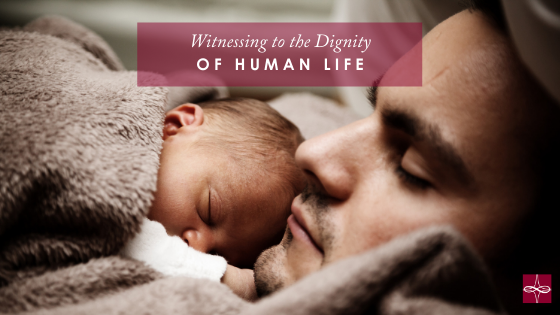

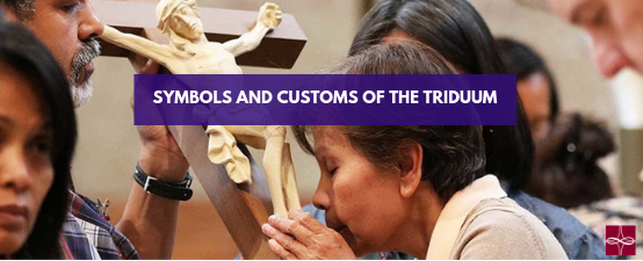
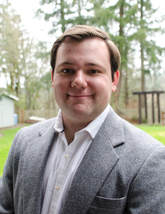
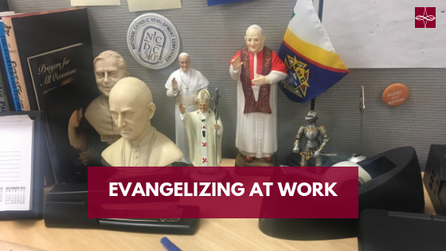

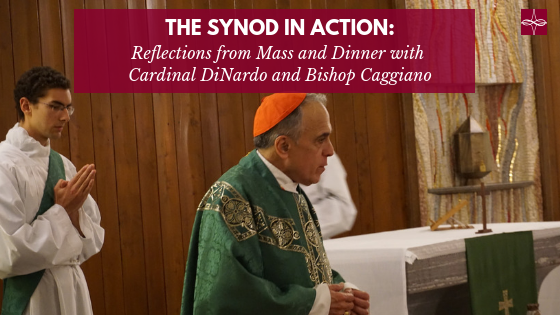

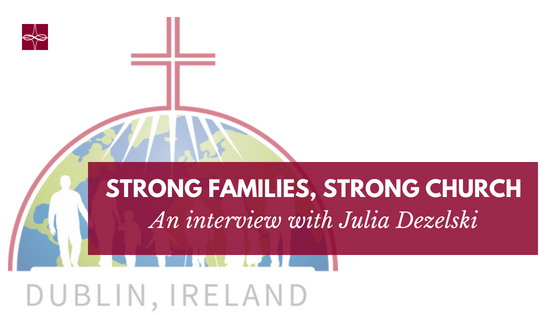
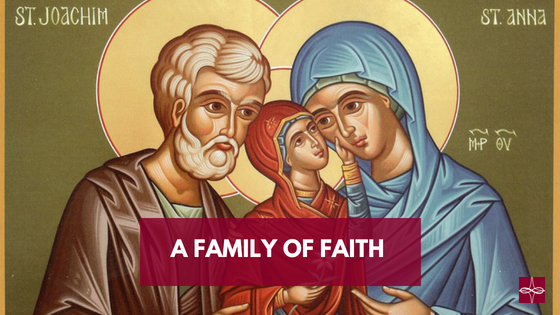

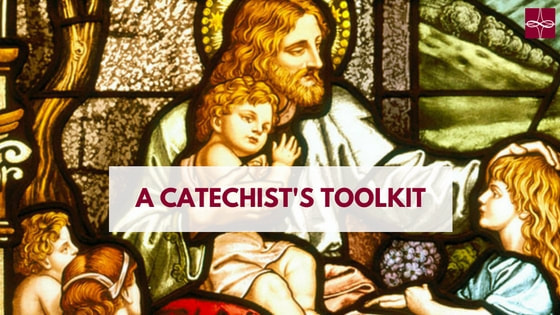
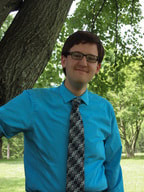
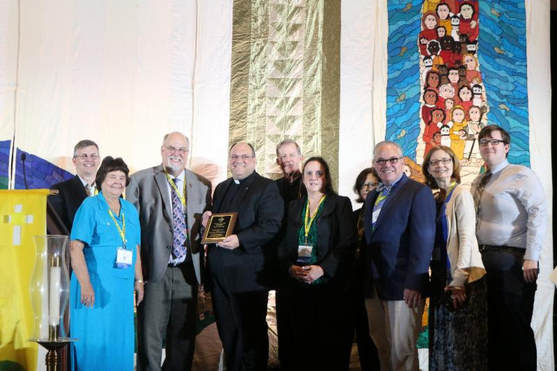
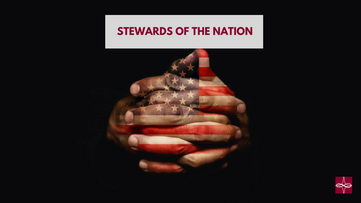
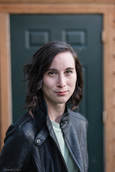

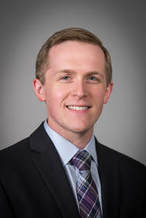
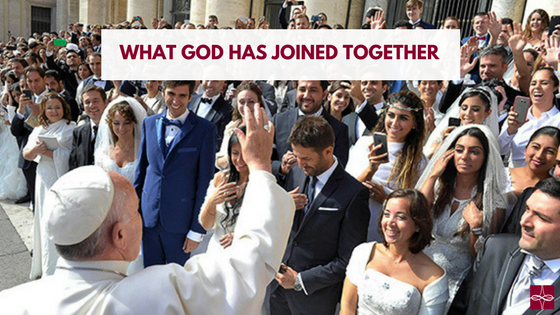

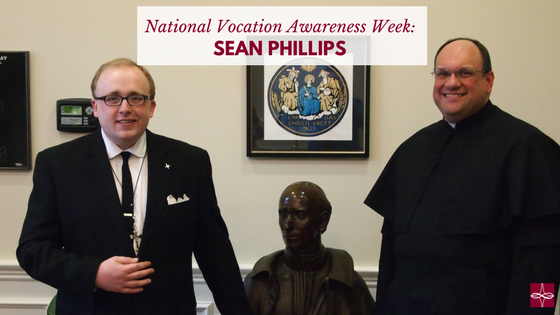
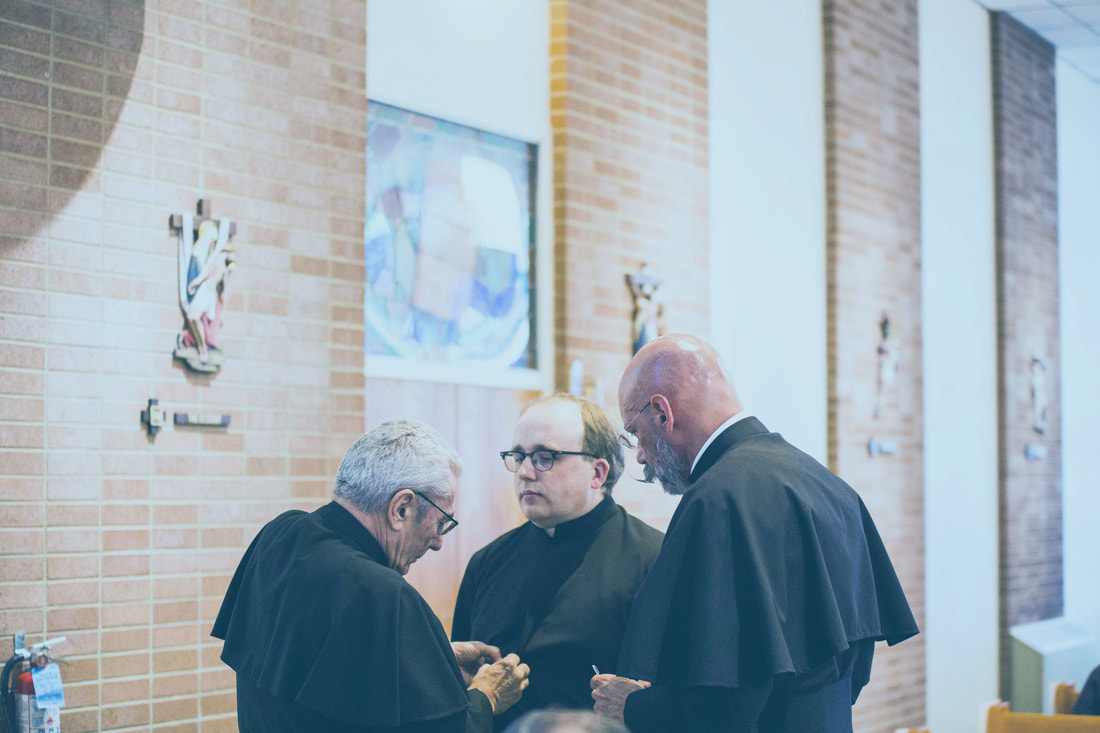
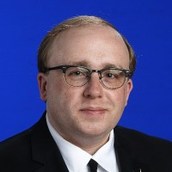
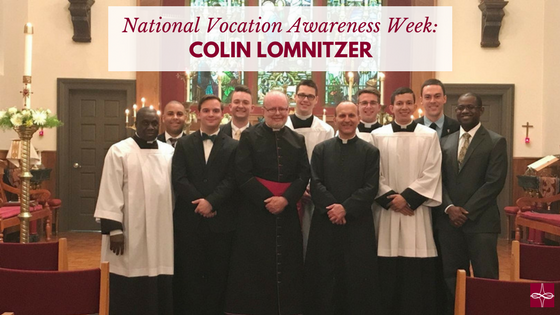
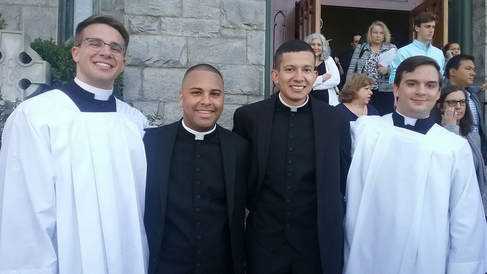
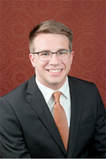
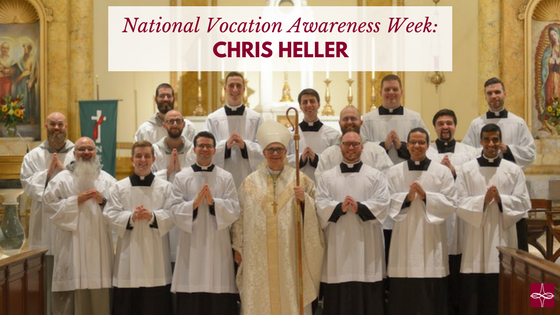
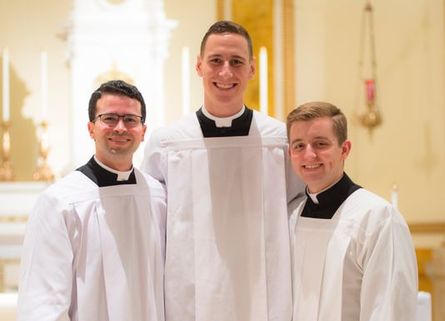
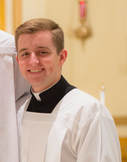
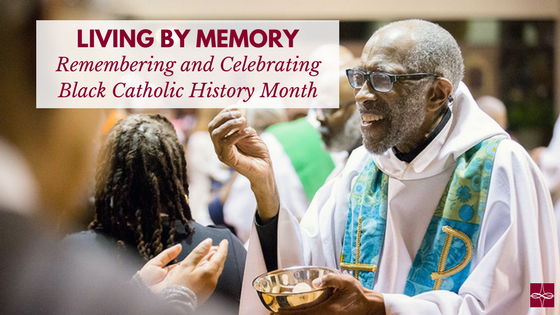
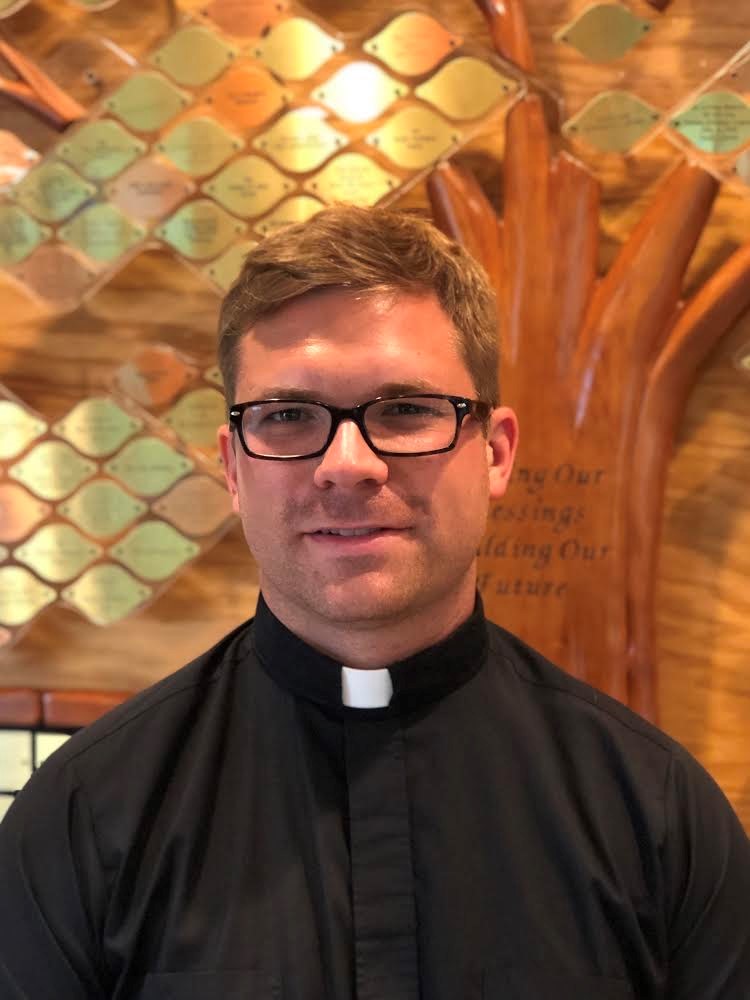
 RSS Feed
RSS Feed